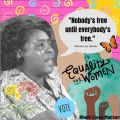Former Board members Paij Wadley-Bailey and Pat O’Brien. Photo by Robin Lloyd, used with permission
By Darien De Lu
President
December 2021
Racial Justice Work: Understanding and Awareness
WILPF’s work on racial justice issues has continued through the decades. Here, in part 3, I focus on about 1996 to 2013 – my early years as a national board and/or committee member. Throughout that time, WILPF hosted racial justice events across the country and worked with branches and the national board to increase information and understanding about racism in the US.
In part 2 of this three-part series, I made the distinction between “inner” work – addressing the personal awareness, attitudes, and unconscious biases of WILPF members – and “outer” work – addressing race-related injustices in education and employment, the law, etc. In that October 2021 article, I elaborated on how these inner and outer differ. (For more on inner work, contact me and/or see much below.) In part 1, in the September 2021 eNews, I focused on WILPF’s Advancing Human Rights (AHR) Issue Committee from 2017 to mid-2021. Since then, much has changed in AHR, with five active subcommittees pursuing action in different human rights areas. (For further information or to get involved, contact AHRchair@wilpfus.org.)
I would like to go back much further in WILPF’s long history of racial justice work, but I’m limiting myself to those years of which I have some direct knowledge of national WILPF activism. We are fortunate that Joyce Blackwell presents the first sixty years of WILPF’s race-related efforts in her book, No Peace Without Freedom: Race and the Women’s International League for Peace and Freedom, 1915–1975. My brief series leaves about a twenty-year gap, from 1976 to 1996.
Blackwell’s book talks especially about Black members who made significant contributions to WILPF in the period she covers. WILPF was one of the few groups in the pre-Civil Rights Movement era committed to racial diversity and seeking to end racism. However, WILPF’s joined effort of Black and white women did not always go smoothly. Challenges included working well together and the endeavor to recruit Black women while also maintaining all the white members. These kinds of challenges continue, yet WILPF US has worked hard over recent decades for both inner and outer change.
Truth and Reconciliation, Building the Beloved Community, and UFORJE Campaigns
In 1995 I became a National Board member when I was elected as president of WILPF US’s western region (of those days). I attended my first board meeting in 1996 in our large and peculiar old building on Race Street in Philadelphia. In 1996-1999, WILPF had a national Truth and Reconciliation campaign modeled on the truth and reconciliation work of South Africa. WILPF’s work included a WILPF Truth and Reconciliation Conference at New York University in 1997. (View the inspiring video documenting it; scroll down to find the 18-minute video.) The T & R campaign’s long-term goal was to challenge all forms of racial injustice. In conjunction with the T & R work, national WILPF supported group racial justice trainings for WILPF members at branches across the country.
WILPF’s national UFORJE (Uniting for Racial Justice: Truth, Reparations, Restoration, and Reconciliation) campaign evolved from the T&R campaign. As part of that work, in 2001, WILPF US funded a delegation of over fifteen WILPF women of color, including Board member Paij Wadley-Bailey, to attend the UN World Conference Against Racism in Durban, South Africa.
The conference, from August 31 until September 8, 2001, was a global milestone. But sadly, it vanished from US attention and media discussion on September 11, with the national panic in response to the terrorist attacks. Only now – twenty years later – is an exploration of the issue of reparations returning to general discourse.
After about 2000, most of WILPF’s focus has been on institutional and systemic oppression (what I call outer work) rather than personal attitudes (inner work). In a November 2002 “Introductory Workshop,” the UFORJE Campaign led the national board in a discussion “on systemic oppression, differentiating it from prejudice.” This distinction was expanded upon in the presentation and discussion on intentions vs. consequences. (Good intentions don’t excuse bad consequences, yet they can be a starting point for needed change.)
At that time, as now, WILPF was mostly white, women, and older; and we wondered, “What do we need to do to get more diversity?” In 2003, UFORJE took steps to address that question, focusing on Building the Beloved Community. UFORJE’s vision was of building “the beloved community where racial, economic, gender justice, peace, and political democracy exist.” They sought to “create the peaceful transformation...by making connections.” Among the elements of the UFORJE mission statement were these:
- Connect racism and all other forms of oppression to poverty, economic systems, and war
- Create strategies and actions that transform societies from systemic racism to racial justice
UFORJE continued to work for a more sophisticated understanding of systemic racism. In a 2003 statement, UFORJE noted how understanding the nature of systemic racism will enable this movement to:
- Focus on how the system works
- Identify connections between all forms of systemic oppression
- Determine what can be done to transform the system
- Ascertain our individual responsibility for maintaining the oppressive system and organizing for justice
As part of that work, in 2003, UFORJE initiated sessions on “Racial Justice Awareness” and “Internal Racism” at each national board meeting. Board meetings were twice a year then, and the sessions were usually about two hours long. In 2008 and 2009, when Paij Wadley-Bailey was national Secretary, the Board began every meeting with a racial justice item. Wadley-Bailey led at least one of those activities.
From about 2008 to 2014 were difficult ones for WILPF US, with at least eight resignations from the national board (including mine) and serious disagreements between the board and WILPF members nationwide. Certain conflicts continued into the presidential term of Mary Hanson Harrison (2014-19), including accusations against her (which were never substantiated) of racism towards a staff member.
WILPF is now increasing our activism in multiple areas, and we want to welcome a wide variety of people into membership. To address structural and unconscious racism and other kinds of discrimination in WILPF, it is crucial that members and branches increase their awareness about various “cultural” differences – including economic, gender identity, and age.
This work has already begun! I urge members to take action. Start a book study group on the excellent Uprooting Racism by Paul Kivel (See Kivel’s presentation at our August 2021 Congress – available here, and contact President@WILPFus.org for WILPF’s study group curriculum.) Review the AHR Resource Library of items supporting work toward racial and social justice. Individuals and branches can learn from videos, articles, books, and more in materials from the WILPF Resource List for Dismantling White Supremacy (over twenty pages of resources!).
If you would like to be part of a national ad hoc committee to work on inner work – work that began with committee meetings last summer and will continue, please contact me (President@WILPFUS.org). WILPF has been known for our sisterhood, and now we can extend that to a wider variety of members.


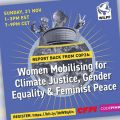
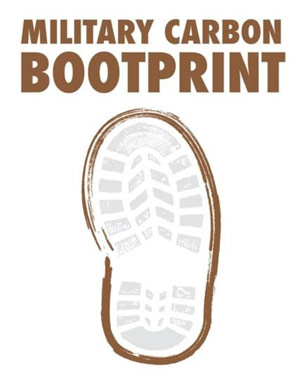 Once again, repeating what has happened at earlier Summits, the world’s military escaped being held accountable for its carbon “bootprint.” Remember, the U.S. Department of Defense is estimated to emit more CO2 than over 120 separate countries.
Once again, repeating what has happened at earlier Summits, the world’s military escaped being held accountable for its carbon “bootprint.” Remember, the U.S. Department of Defense is estimated to emit more CO2 than over 120 separate countries. 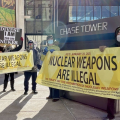
 There were dozens of events around the country on January 21, 2021, to celebrate and advertise that nuclear weapons are now illegal (at least for the countries that have ratified the Treaty). Alliance for Nuclear Accountability developed a banner that was displayed from coast to coast and border to border. WILPF US created our own banner, leaving room to add other language.
There were dozens of events around the country on January 21, 2021, to celebrate and advertise that nuclear weapons are now illegal (at least for the countries that have ratified the Treaty). Alliance for Nuclear Accountability developed a banner that was displayed from coast to coast and border to border. WILPF US created our own banner, leaving room to add other language.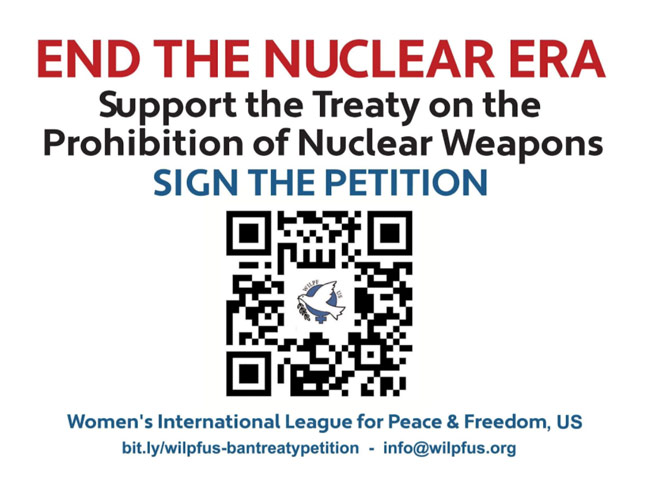 The banners, yard signs, and petitions used last year are of course still relevant.
The banners, yard signs, and petitions used last year are of course still relevant.
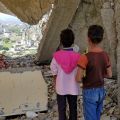
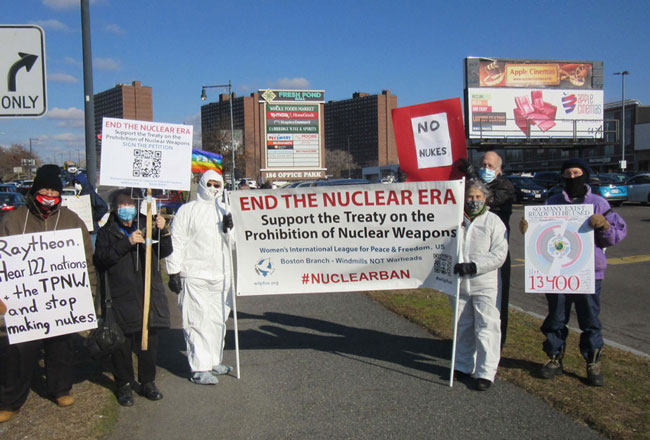



 THANK YOU ALL – with an encouraging 34% return rate – for taking the time to answer our three questions with clarity and sensitivity! Bravo!
THANK YOU ALL – with an encouraging 34% return rate – for taking the time to answer our three questions with clarity and sensitivity! Bravo! On Friday, October 15, the Poor People’s Campaign (PPC) hosted a National Press Conference and Saturday, October 16 the PPC held plenary sessions focused on moral fusion organizing and plans for June 2022. As for Saturday, October 23, the PPC also organized part two of the plenary sessions, which focused on training/prepping grassroots leaders.
On Friday, October 15, the Poor People’s Campaign (PPC) hosted a National Press Conference and Saturday, October 16 the PPC held plenary sessions focused on moral fusion organizing and plans for June 2022. As for Saturday, October 23, the PPC also organized part two of the plenary sessions, which focused on training/prepping grassroots leaders. For the last 8 months, the participating WILPF branches (Sacramento, San Diego, Des Moines, Boston, and Philadelphia) have been doing internal and external work building from the inside & out. This first time trial process has required members to engage in leadership development, learn and unlearn, and be willing to try new things using the Asset Based Community Development (ABCD) Framework.
For the last 8 months, the participating WILPF branches (Sacramento, San Diego, Des Moines, Boston, and Philadelphia) have been doing internal and external work building from the inside & out. This first time trial process has required members to engage in leadership development, learn and unlearn, and be willing to try new things using the Asset Based Community Development (ABCD) Framework. 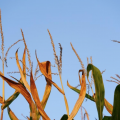
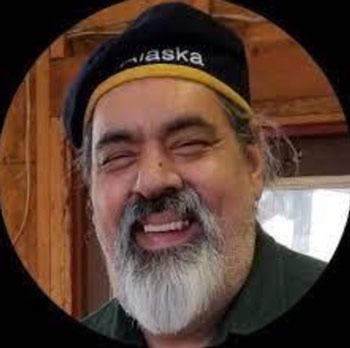 Ojibwe tribal attorney Frank Bibeau (with
Ojibwe tribal attorney Frank Bibeau (with 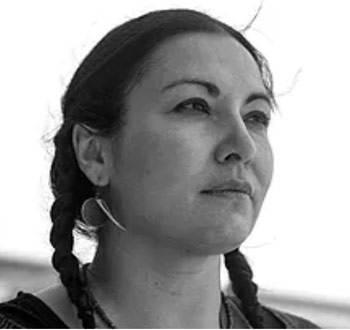 And just in time for Thanksgiving, Skiowis (Christine) Nobiss of
And just in time for Thanksgiving, Skiowis (Christine) Nobiss of 